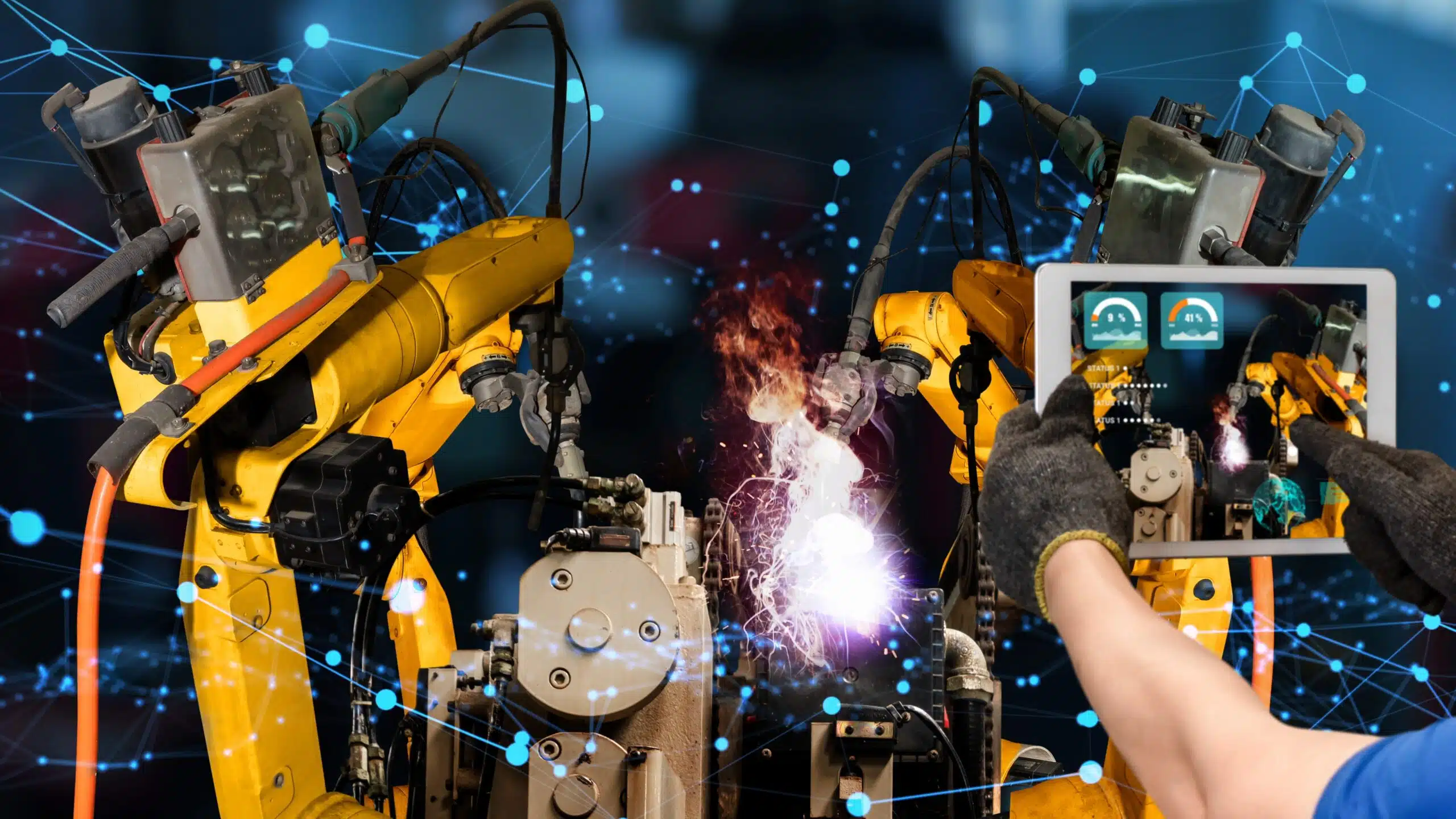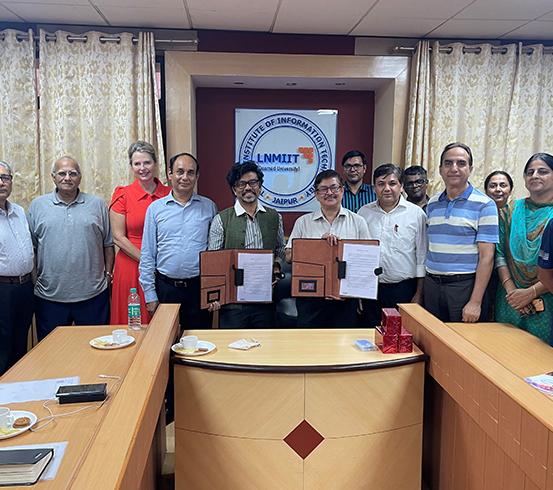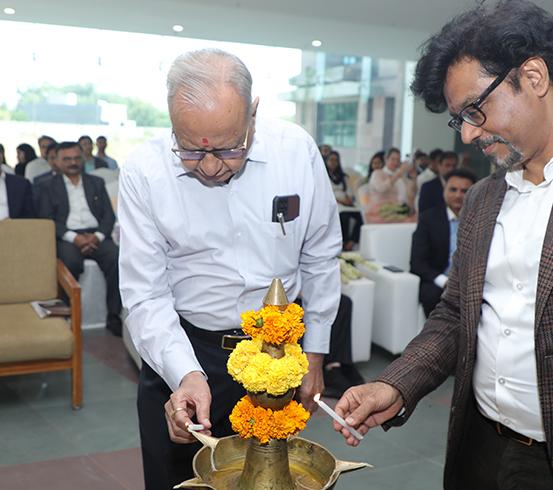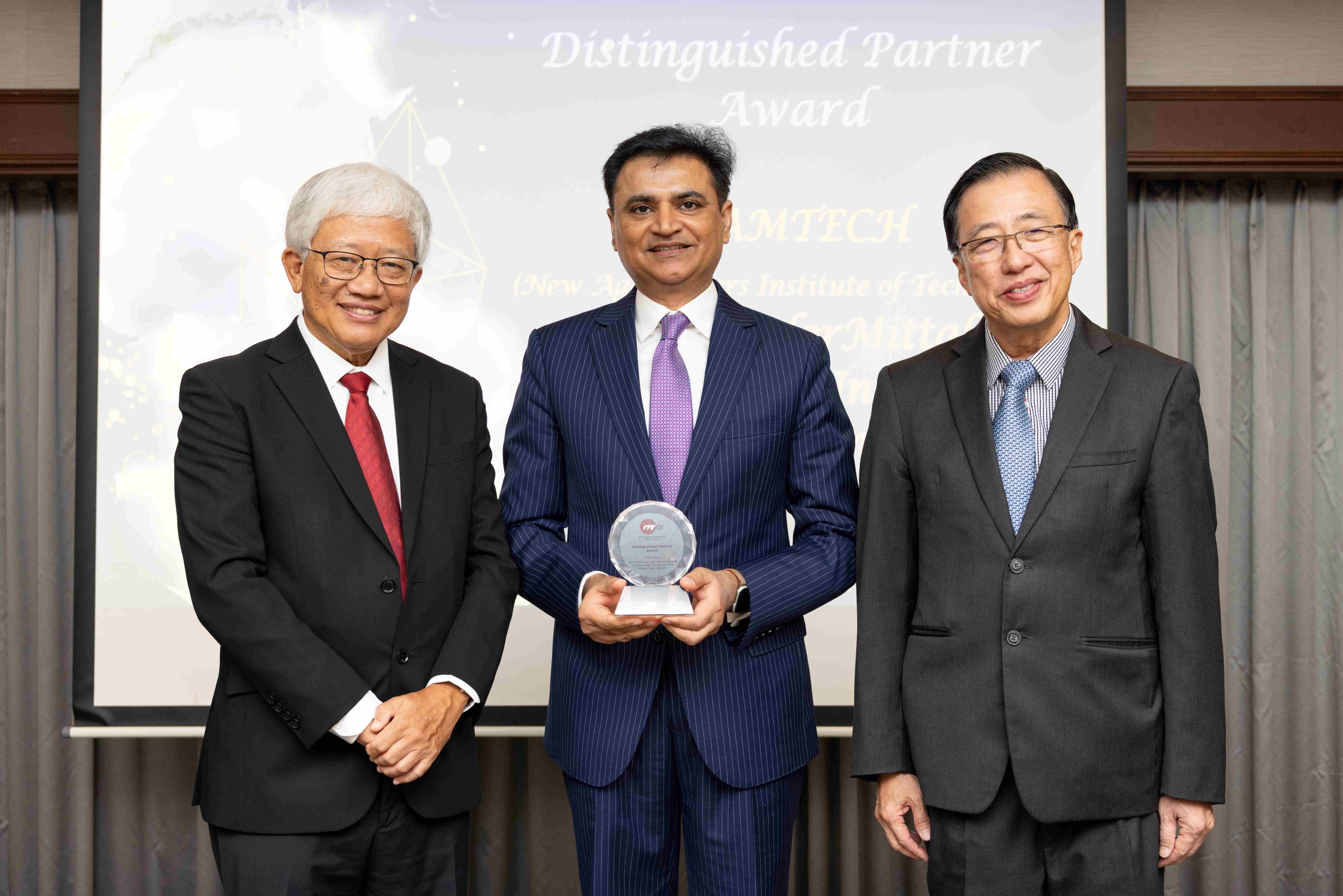Evolution is the ultimate law of the universe. From the First Industrial Revolution to Industry 4.0, technologies have evolved significantly. Some people have even mentioned Industry 5.0. It will bring back empowered humans on the floor along with machines. Dr. David Romero (Professor and Vice Chairperson of the World Manufacturing Foundation) envisioned that “Industry 5.0 would create a sustainable, human-centric, collaborative, and resilient manufacturing industry.”
The manufacturing industry across the world is working at full steam to transform their conventional production process into a smart manufacturing system. AI, ML, IoT, IIoT, and Cloud Computing have become integral to boardroom strategy meetings to develop efficient manufacturing processes and minimise human errors and wastage.
Let us go through the numbers suggesting how manufacturers globally implement smart manufacturing technologies:
– According to Plex Systems, around 24% of manufacturers worldwide had implemented smart manufacturing by 2020.
– 44% of APAC manufacturers are at different stages of implementing innovative manufacturing processes in 2023, including 60% in Australia and 80% in China.
– The future of smart manufacturing will be defined by the Internet of Things, Machine-to-Machine communications, Big Data, Wireless Sensor Networks, and other technologies.
– As of December 2023, around 49% of food and beverage organisations had implemented smart manufacturing. IoT Analytics mentioned that around 72% of manufacturers have already adopted Industry 4.0 technologies.
– Deloitte and MLC’s 2023 study on the industrial metaverse found that around 92% of surveyed manufacturers are experimenting with or already using at least one metaverse-related use case.
As a manufacturer, it is essential to know the key components you require for the successful implementation of a smart manufacturing system. The right strategy is always crucial, whether it’s conventional factories or techy smart factories. Here, we will explore six vital components manufacturers must consider when transitioning to smart manufacturing.
Six Elements for Optimised Smart Factory Setup
1. Connectivity
The ability of machines, devices, and systems to connect and communicate seamlessly with one another is the first and foremost requirement for a smart factory. Manufacturers should plan and implement best-in-class connectivity and ensure real-time communication.
Smart factories can implement IoT and IIoT-enabled technologies such as actuators, controllers, sensors, and others throughout the factory floor and other departments. These devices aggregate information and data on multiple parameters, including pressure, temperature, humidity, and vibration. They transmit this collected data to a central server or cloud. AI-based tools analyse the data to derive valuable insights and help make real-time decisions. Therefore, these smart manufacturing technologies of Industry 4.0 ensure connectivity in production and optimise efficiency and productivity.
2. Automation
Manufacturers and organisations across industries are adopting automation rapidly. According to a recent study, around 67% of companies applied business process automation to streamline and automate their regular workflows as of March 2024. Over 31% of organisations have entirely automated at least one of their crucial functions, and 24% have already used low-code process automation in their processes.
Automation is a crucial component to transform your conventional manufacturing setup into a smart manufacturing arrangement. Automation refers to installing machines and software systems to execute tasks that were traditionally performed by humans. It minimises human errors, performs high-risk tasks and repetitive work, and optimises workflow at the production line.
Fixed automation, programmable automation, process automation, flexible automation, integrated automation, robotics, and IoT are prominent examples of automation in Industry 4.0 and beyond.
Learn automation and explore exceptional career opportunities after BTech. Automation is and will be among the most sought-after skills in smart factories in Industry 4.0. We suggest exploring NAMTECH, a new-age institute for professional programs, and applying for the iPMP program to become technologists and lead the future of smart manufacturing.
3. Analytics
The third element for implementing smart factories is analytics. Data generated from diverse tools and devices needs proper analysis; otherwise, collected data is useless. Analytics is a process of analysing collected data to derive insights and arrive at key decisions for the organisation.
Information-based decision-making is a vital advantage smart factories enjoy over traditional factories. Predictive analysis through AI and ML helps identify patterns and anomalies and prepare a strategy for future business growth and expansion.
4. Artificial Intelligence
AI is a crucial spoke in the current and future of smart manufacturing. It is a combination of software systems and machines that execute functions that usually require human intelligence, including perception, reasoning, and learning. In manufacturing, AI can help with optimising production schedules according to demand forecasts, streamlining cutting patterns to minimise material waste, and detecting anomalies in real-time.
Manufacturers generally use supervised and unsupervised machine learning technologies. ML is a subset of artificial intelligence.
5. Cybersecurity
Industry 4.0 is based on technologies and virtual solutions. It can make your system vulnerable to cyber-attacks; therefore, you should shield it with a top-notch cybersecurity infrastructure. It is crucial at every stage of the production process, from sensors and devices to a central server and the cloud.
The need for cybersecurity across the spectrum of manufacturing and other industries also opens lots of career opportunities. Therefore, you can explore career opportunities after BTech with a professional master’s program from a notable institution.
6. Integration
In Industry 4.0, a smart factory refers to an integrated system of machines and systems that work collaboratively and harmoniously. Manufacturers apply open standards and protocols to implement smart manufacturing technologies in smart factories.
The smart factory settings should be open to adapt according to evolving consumer demands and aspirations. Flexibility and human-machine collaboration are crucial for developing an efficient and integrated system.
Conclusion
These are the top six elements of Industry 4.0 that can be used to implement a flawless smart factory setup. Also, leverage the strengths of humans and machines for an efficient smart factory because human-machine collaboration is the future of smart manufacturing. It will create a sustainable, stable, collaborative, productive, and harmonious manufacturing ecosystem. Explore a professional master’s program in smart manufacturing and become a skill-ready technologist for the future of manufacturing.
—
By incorporating these essential elements into your smart manufacturing strategy, you can ensure a future-ready, efficient, and productive factory setup that meets the demands of Industry 4.0 and beyond.











